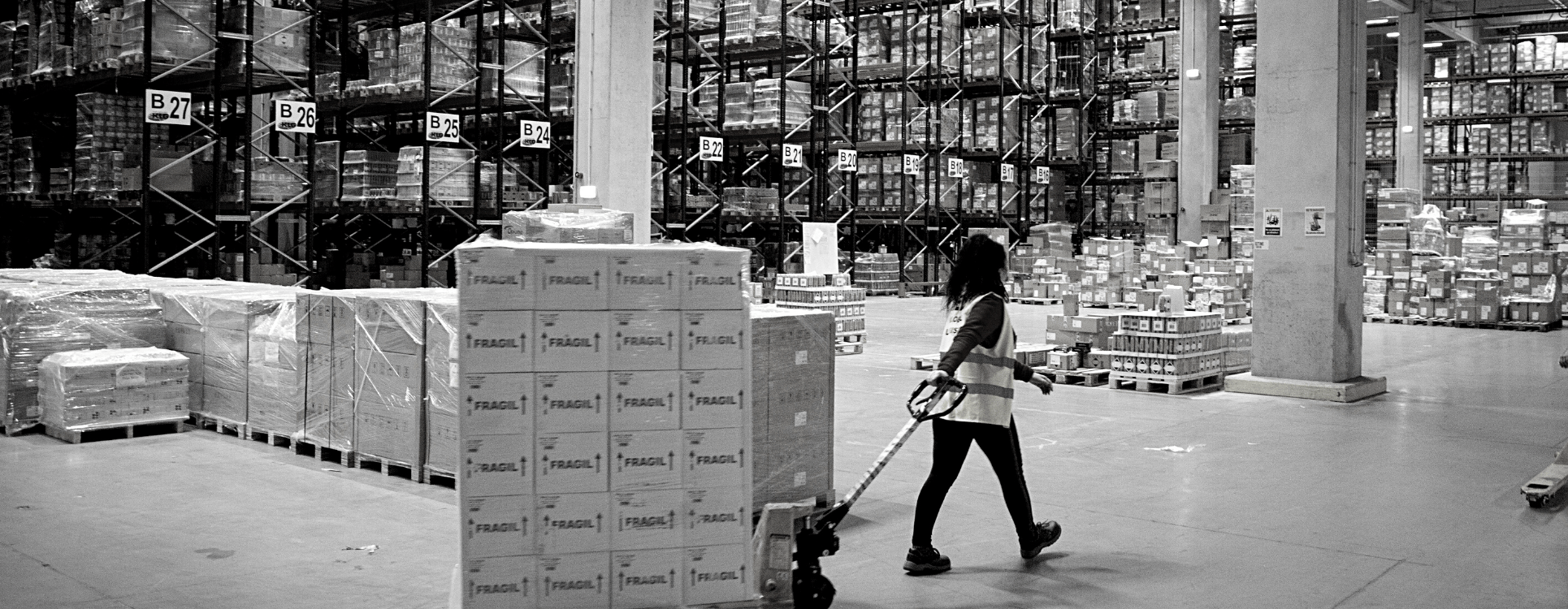Developing an e-commerce business and launching an online store requires a lot of work and many decisions. As such, it is critical that any entrepreneur be as well-informed as possible from the start. Logistics centers are important in e-commerce because they determine where you will store your inventory, how quickly you will be able to deliver customer orders, and what services you will offer. In this article, you’ll learn how logistics centers work, what different types of centers are, and why most online retailers prefer to work with a service provider that has a large distribution network.
What is the difference between logistics and supply chains?
To begin, we distinguish between logistics and supply chains. These two concepts should not be used interchangeably: logistics is a narrow concept that refers to the global management of resources – practically, from each local unit to the entire network of production points. Supply chain management, on the other hand, is a more complex category. Supply chain management incorporates logistics and thus achieves end-to-end optimization, i.e. not only within the company, but also when collaborating with partners.
What exactly are logistics centers?
Logistics centers are storage facilities for goods that must be transported to another location. They can be:
- Local
- General regional
- Regional, specialized on certain goods
- Regional, specialized to operate only on specific types of infrastructure.
There are various types of logistics centers, and some provide space for products to be distributed before they arrive at their final destination, while others provide storage space on request. Whether it is owned or rented warehouses, delivery time and access to a large market are the most important factors in logistics operations.
In most cases, e-commerce inventory is stored in an e-fulfillment center run by a 3PL*, which provides not only storage but also fulfillment and shipping options. And, in this case, we can see the distinction between a warehouse and a logistics center that provides fulfillment services. In general, logistics centers are run by a third-party logistics (3PL) company that provides e-fulfillment services to online retailers in order to help them optimize their supply chain. Such a three-party logistics (3PL) provider not only stores inventory, but also handles all aspects of online store orders.
What is the supply chain?
The supply chain includes the entire enterprise and is organized around the following flows: sales, distribution, production, procurement, and supply. Supply chain management is an important aspect of industrial and commercial enterprises. This represents a significant opportunity to create value for the customer in terms of service quality, delivery time, and activity. Any economic change that has an impact on the supply chain affects all aspects of a business. For example, in the context of the pandemic, the supply chain was directly impacted, resulting in a variety of difficulties in the economic activity. As a result, it is critical to ensure raw materials for production and maintain a minimum level of inventory through careful data analysis from logistics centers.
Conclusion
For an online entrepreneur, the processes involved in managing a logistics center can be overwhelming, and managing it on your own is a real challenge. When we consider the coordination required with suppliers, hauliers, and staff who must deal with these services, it becomes nearly impossible to deal with such a process alone.
As a result, most entrepreneurs prefer to outsource logistics to a 3PL company, which provides an integrated solution of e-fulfillment, dedicated support, infrastructure, technology, data and analysis, as well as best practices to save time and money in the long run through the partners with whom it collaborates.
So, while many people confuse the supply chain with logistics, the latter is only one component of the supply chain. Procurement, product lifecycle management, supply chain planning (including inventory planning and maintenance of company assets and production lines), and logistics are all part of the supply chain business (including transportation and fleet management).
*3PL – Represents a company that offers logistics services to other businesses that require them (third parties). Transport, handling, and storage of shipments, warehouse management and distribution, as well as a variety of other services related to transport monitoring, warehouse management, customer transactions, and so on.


